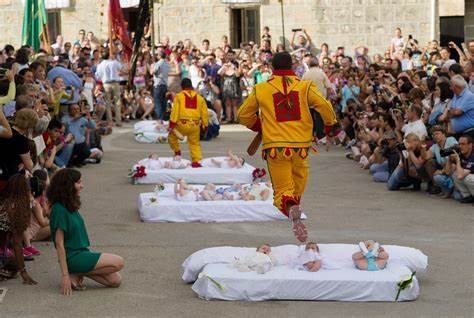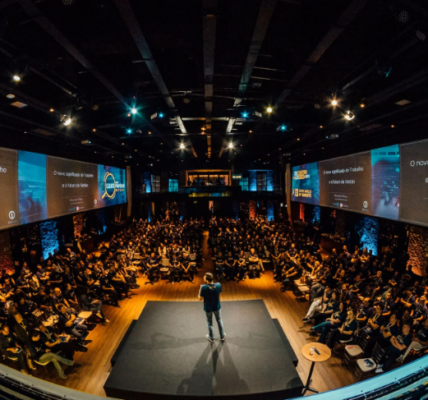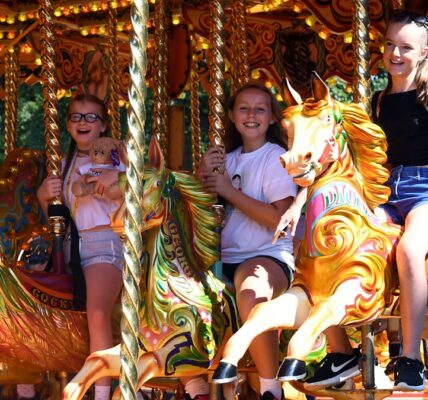Festivals, those magnificent expressions of human creativity and culture, take on diverse forms and meanings across the globe. While each festival is unique in its own right, there are intriguing similarities that bind celebrations from different corners of the world. In this article, we embark on a journey to uncover the common threads that weave through similar festivals around the world, uniting people in joy and shared traditions.
Harvest Festivals: Nature’s Bounty Celebrated
Harvest festivals, a testament to the intimate connection between humans and the land, are observed worldwide. From Thanksgiving in the United States to Pongal in India and Chuseok in South Korea, these festivals share a common theme of gratitude for nature’s abundance. People come together to celebrate the harvest, often with feasts, dances, and communal gatherings.
Light Festivals
Light festivals are a universal way to chase away the darkness and usher in a sense of hope and renewal. Whether it’s the dazzling displays of Diwali in India, Hanukkah in Israel, or the Lantern Festival in Taiwan, these celebrations revolve around the symbolism of light. People light lamps, candles, or lanterns to illuminate the night and celebrate the triumph of good over evil.
Water Festivals: Cleansing and Rebirth
Water festivals are a fascinating category that transcends borders. Festivals like Songkran in Thailand, Holi in India, and Carnival in Brazil all incorporate water in their celebrations. Water symbolizes purification and renewal, as people splash and drench each other in playful water fights, cleansing themselves of the past and embracing a fresh start.
Music and Dance Festivals: Rhythmic Reverie
Music and dance are the universal languages of joy and expression. Similar festivals celebrating these art forms can be found across cultures. From the exuberant samba of Carnival in Brazil to the rhythmic beats of the Mardi Gras in New Orleans, and the mesmerizing dance of the Flamenco Festival in Spain, these events share the common purpose of revelry and rhythmic celebration.
Carnival and Masked Festivals
Carnival and masked festivals are a global phenomenon where people don masks and costumes to immerse themselves in a world of disguise and intrigue. The Venetian Carnival in Italy, Carnevale in Brazil, and Mardi Gras in New Orleans all feature elaborate costumes, masks, and grand parades that enable participants to embrace a different persona, even if only for a short while.
Lunar New Year Celebrations: Welcoming the Zodiac
Lunar New Year celebrations occur in various countries, such as China, Vietnam, and South Korea. These festivals revolve around the lunar calendar and are marked by colorful parades, traditional foods, and cultural performances. People pay homage to the zodiac animal of the year and seek blessings for the year ahead.
Solstice Celebrations: Honoring the Sun
Solstice celebrations are linked to the changing seasons and the sun’s position in the sky. From the ancient Stonehenge Summer Solstice gathering in England to the Indigenous Midsummer Festival in Sweden, these events pay homage to the sun’s vital role in nature. Participants often engage in ceremonies, bonfires, and revelry.
Day of the Dead Festivals: Honoring Ancestors
Day of the Dead festivals, known as Día de los Muertos in Mexico and similar festivals in Latin America, share a common theme of remembering and honoring ancestors. These celebrations involve colorful altars, sugar skulls, marigolds, and visits to cemeteries to commune with the spirits of the departed.
In conclusion, while the world is a tapestry of diverse cultures, traditions, and celebrations, it’s fascinating to discover the common threads that link similar festivals across borders. These shared themes reflect our shared humanity, from the gratitude for nature’s gifts to the universal love of light, music, and dance. As we explore these celebrations, we come to appreciate the global symphony of traditions that unite us in the joy of festivity.





